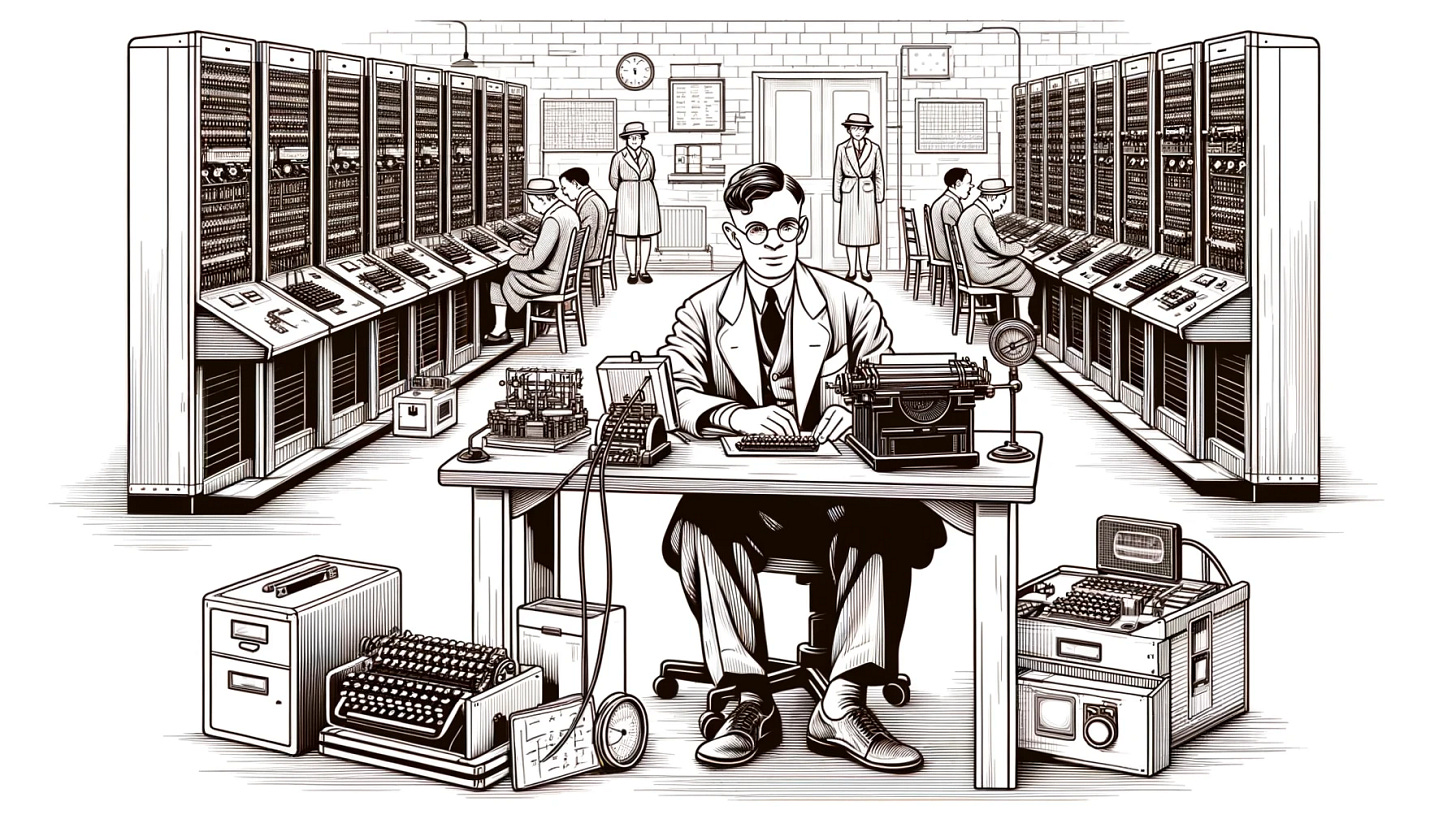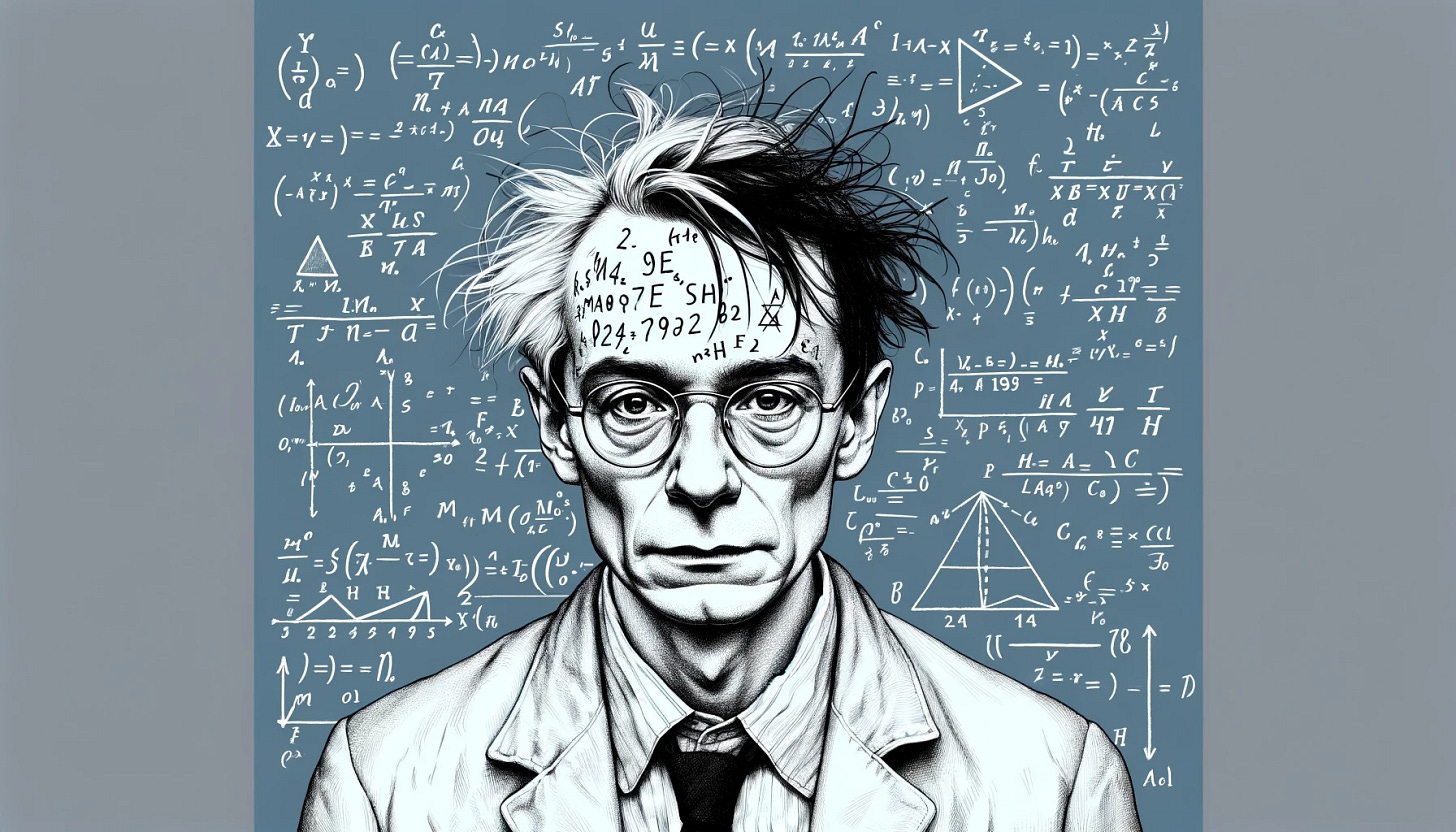The term “geek” has evolved a lot during my lifetime. When I was a kid, nobody wanted to be called a geek. It meant you had no romantic mojo, that you didn’t fit in with your peers, and that you were deeply, passionately into something weird.
Today, some of that is still true, but the word has been embraced by many who would have been called geeks when I was a kid, and by even more who wouldn’t have been considered geeky at all. What’s changed even more is that the geeks are among the most powerful people in the world today.
This certainly wasn’t true during the lifetime of Alan Turing. The early 20th century in the UK saw a strong drive toward conformity. Men were encouraged to behave like men, and gender stereotypes weren’t optional.
During World War II, he was a leading participant in the wartime code-breaking efforts at Bletchley Park, which were vital to the Allies' success. His work in cracking the Enigma code used by Nazi Germany demonstrated his profound understanding of the capabilities and potential of machines.
Turing took the study of machines much further, asking the question: could a computer do pretty much anything a human could do? Could the intricacies and nuances of human language be reflected back in a machine? This is a path we’re still heading down today.
Despite his monumental contributions to computing and the war effort, Turing's life was marred by tragedy and prejudice. Convicted in 1952 for homosexual acts, a crime in the UK at the time, he was chemically castrated as an alternative to prison. This injustice haunted his final years, and in 1954, Turing died of cyanide poisoning in what was ruled a suicide.
While Turing's story serves as a reminder of the devastating consequences of persecution based on sexual orientation, the tale of Évariste Galois is a completely different sort of tragic.
Galois grew up a century before Turing. While he was still a teenager, he made some serious contributions to the field of abstract algebra. Unfortunately, his work was underappreciated during his lifetime. Fortunately, his manuscripts were eventually discovered and published, leading to widespread recognition of his genius.
Today, his theories continue to have an impact on various fields of mathematics and science, including cryptography (Alan Turing’s field) and quantum mechanics. After being rejected twice from the prestigious École Polytechnique, Galois became involved with political activism, and gained a bit of a reputation as a rebel.
Unfortunately, he died at age 20 from wounds sustained in a duel, and nobody much knew of Galois’s brilliance. However, the night before the duel, he frantically wrote down his mathematical discoveries, aware that he might not live to see them published.
If Galois lived a tragically short life, Kurt Gödel lived long enough to be widely recognized during his own lifetime. That doesn’t mean it was a lifetime without turmoil, though.
Like Galois and Turing, Gödel displayed a mathematical genius at a very early age. He studied at the University of Vienna, where he quickly established himself as a thought leader, contributing to set and number theory.
Then, he turned the world of mathematics inside out. Gödel's incompleteness theorems shattered the idea that mathematics was a perfectly complete and consistent system. It showed that even with the most rigorous rules, there will always be unprovable truths lurking within mathematics, like hidden corners in the library that the catalog can't reach.
While the technical details of Gödel's work are complex, his ideas have had a profound impact on our understanding of the limits of logic and knowledge. It's a reminder that even in the most rigorous fields, like mathematics, there are mysteries that may forever remain unsolved.
In simpler terms, there will always be true statements that cannot be proven within the system itself.
Like Einstein, Gödel felt an urgent need to get away from the German sphere of influence in Europe. In 1940, he joined the faculty at the Institute for Advanced Study in Princeton, where he and Einstein remained friends for the rest of Einstein’s life.
Unfortunately, Gödel was plagued by periods of mental instability and paranoia. His paranoia eventually got so bad that he stopped eating, believing that he was being poisoned.
Gödel died of starvation in 1978.
Alan Turing, Évariste Galois, and Kurt Gödel were certainly geeks in the sense of being deeply dedicated to their crafts. Each of them had a different tragic ending.
What would Turing have thought of the personal computer revolution? Could Gödel have thrived under different circumstances, and what types of contributions to mathematics might Galois have made, had he lived past the age of twenty?
We can’t play these scenarios out today, but we can keep in mind that today’s social outcasts might be the inventors of tomorrow’s world.
What are some other “geek tragedies” you know of, from fiction or reality?






Van Gogh is probably a good example. He produced 2100 paintings in his lifetime and only sold one. He committed suicide
Aaron Swartz helped create RSS, Creative Commons, and markdown. He was a very effective online activist for progressive causes and fighting the kind of digital f**kery that's taken over the 'Net.
He committed suicide after being persecuted by MIT and federal prosecutors for downloading peer-reviewed literature from JSTOR. JSTOR had already settled with him and he had "returned" the material. That wasn't good enough for someone....